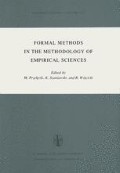Abstract
Game theory models which have been in vogue for the last 30 years are essentially static even though they may model situations without equilibria, and may be studied from the points of view of changing strategies, coalitions and of perfect information or the lack of it, and even though any number of players, strategies and outcomes may be modeled by using larger matrices. Game theory models are inadequate for modeling even simple alternative logical relationships among rule applications which are present in simple actual games and they are inadequate for representing any changes in game structure. The addition of logical relationships among rules is an initial step in remedying the first inadequacy and the addition of a temporal order in the application of the logical relationships allows changes in game structure to be represented. The adding of social rules or causal factors external to the game to account for the changes completes the initial steps for a model of game-like situations which are no longer static.
Access this chapter
Tax calculation will be finalised at checkout
Purchases are for personal use only
Preview
Unable to display preview. Download preview PDF.
Bibliography
Davis, Morton D.: Game Theory: A Nontechnical Introduction, N.Y.: Basic Books, Inc., Pub. 1970.
Howard, Nigel: ‘The Mathematics of Meta-Games’, and ‘The Theory of Meta-Games’, in General Systems, Vol. 11, part. 5, 1966, pp. 187–200 and 167–185.
Rapaport, Anatol: ‘Escape from Paradox’, Scientific American, July 1967, Vol. 217, No. 1, pp. 50–56.
Lockwood, David G.: Introduction to Stratificational Linguistics, N.Y., Narcourt Brace Jovanovich. Inc. 1972.
Makkai, Adam and Lockwood, David G.: Readings in Stratificational Linguistics, University of Alabama Press, 1973.
Editor information
Rights and permissions
Copyright information
© 1976 D. Reidel Publishing Company, Dordrecht, Holland
About this chapter
Cite this chapter
Robinson, P. (1976). A Logical Model for Game-Like Situations and the Transformation of Game-Like Situations. In: Przełęcki, M., Szaniawski, K., Wójcicki, R., Malinowski, G. (eds) Formal Methods in the Methodology of Empirical Sciences. Synthese Library, vol 103. Springer, Dordrecht. https://doi.org/10.1007/978-94-010-1135-8_15
Download citation
DOI: https://doi.org/10.1007/978-94-010-1135-8_15
Publisher Name: Springer, Dordrecht
Print ISBN: 978-94-010-1137-2
Online ISBN: 978-94-010-1135-8
eBook Packages: Springer Book Archive

